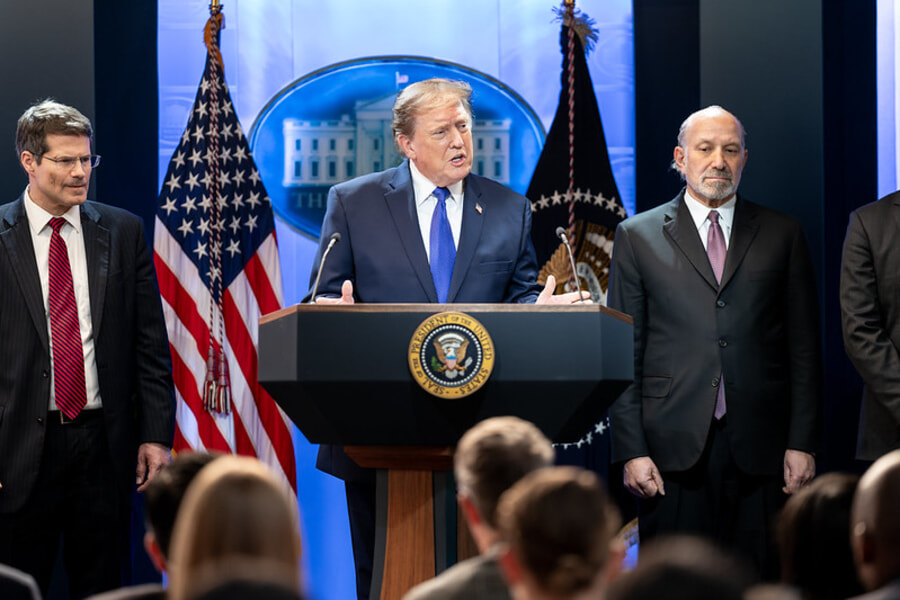Fourth Circuit's Samantar Decision May Create Reciprocal Risks for Former US Government Officials
Last Friday, a Fourth Circuit panel issued a surprising decision in Yousuf v. Samantar, in which it concluded that “officials from other countries are not entitled to foreign official immunity for jus cogens violations, even if the acts were performed in the defendant’s official capacity.” The decision will be understandably applauded by human rights litigators seeking to sue foreign government officials in U.S.
Last Friday, a Fourth Circuit panel issued a surprising decision in Yousuf v. Samantar, in which it concluded that “officials from other countries are not entitled to foreign official immunity for jus cogens violations, even if the acts were performed in the defendant’s official capacity.” The decision will be understandably applauded by human rights litigators seeking to sue foreign government officials in U.S. courts, but it is likely to be deeply troubling to Executive branch lawyers (especially in the Departments of Defense and the CIA), because it will increase the likelihood that former U.S. government officials (including members of the Obama Administration) will be subject to civil or criminal actions relating to their official acts in foreign countries. Executive branch lawyers may not want to allow this decision to stand.
This is the second time the Samantar case -- an ATS and TVPA suit against the former Defense Minister of Somalia -- has been before the Fourth Circuit. The Circuit had previously concluded that foreign government officials are not covered by the Foreign Sovereign Immunities Act but may enjoy common law immunities, a decision affirmed by the Supreme Court in 2010. On remand, the Justice Department filed a Statement of Interest asserting that both head-of-state and official acts immunity are controlled by filings made the Executive Branch, and that in this case the State Department Legal Adviser had determined not to assert immunity on behalf of Samantar.
The Fourth Circuit panel agreed that head-of-state immunity is absolutely controlled by the Executive branch but concluded that U.S. courts, while giving deference to the views of the Executive, may make their own decisions regarding official acts immunity. The panel then went on to find, based on its own independent review of the literature and without the benefit of briefing on the issue by the Executive branch, “an increasing trend in international law to abrogate foreign official immunity for individuals who commit acts…that violate jus cogens norms….”
The Court further states, with very sparse support, that “American courts have generally followed the foregoing trend, concluding that jus cogens violations are not legitimate official acts and therefore do not merit foreign official immunity….”
In reaching this conclusion, the panel does not appear to have considered either the Executive Branch’s view on the jus cogens issue or the reciprocal impact on former U.S. Government officials of removing the immunity of foreign government officials from suit inside the United States. In fact, in previous briefs to the Second Circuit in Matar v. Dichter (an ATS and TVPA suit against the former Israeli intelligence chief for targeted killings in Gaza), the Justice Department had argued that “[t]he Executive does not recognize any exception to a foreign official’s immunity for civil suits involving jus cogens violations…[and] the recognition of such an exception would be out of step with international law and could prompt reciprocal limitations by foreign jurisdictions, exposing U.S. officials to suit abroad on that basis.”
Last year, in an article in the Vanderbilt Journal of International Law, I commented as follows:
The reciprocity point is very important, and not a trivial concern for former U.S. officials. The United States continues to engage in controversial military and intelligence operations around the world, and former Secretary of Defense Robert Gates and former Director of the Central Intelligence Agency Leon Panetta have already been threatened with suits in foreign countries for drone attacks. Once the United States agrees to lift immunity for foreign government officials, it begins to craft state practice that could expose U.S. officials to suits abroad. Plaintiffs would certainly allege that certain actions by U.S. officials violate jus cogens norms, and would argue that, as a result, such U.S. officials are not entitled to immunity. (Citations deleted.)I will likely have more to say about the Fourth Circuit’s decision at a later date. Addendum: To be clear, I am not suggesting that Samantar should enjoy immunity. He appears to have been responsible for horrendous offenses in Somalia, and there are good reasons that he should not be be given immunity, including that he has settled in the United States. But I am saying that the Fourth Circuit could easily have accepted the Executive's determination that Samantar does not have immunity rather than to have fashioned -- based on its own analyis and without asking for the views of the Executive branch -- a jus cogens exception to immunity that is not supported by domestic or international law, and that could have far-reaching implications for U.S. officials.
John B. Bellinger III is a partner in the international and national security law practices at Arnold & Porter in Washington, DC. He is also Adjunct Senior Fellow in International and National Security Law at the Council on Foreign Relations. He served as The Legal Adviser for the Department of State from 2005–2009, as Senior Associate Counsel to the President and Legal Adviser to the National Security Council at the White House from 2001–2005, and as Counsel for National Security Matters in the Criminal Division of the Department of Justice from 1997–2001.



-2.jpg?sfvrsn=f979c73d_6)
